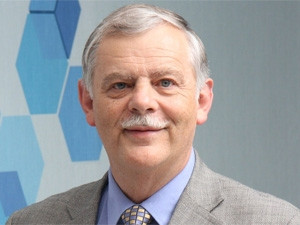
The purpose of a recently published education report was never to name and shame anyone, but to address challenges in education that allows for poor technology, maths and physics results in SA schools.
This is according to Kobus van Wyk, Mustek's head of e-learning and education and a member of the ministerial task team appointed by basic education minister Angie Motshekga to investigate the problems regarding maths, science and technology subjects in schools.
The Sunday Independent this weekend reported that a number of academics are sceptical regarding the findings of the report, questioning the methodology used by the task team and saying its blanket-blame of universities obscures differences in programmes both within and across higher education institutions.
The report found poorly qualified teachers are the main problem in schools, and universities are to blame for not providing teachers with adequate pedagogical training. "A number of years ago, the teacher training colleges were closed down and [the task team had] found that this was not such a good idea," says Van Wyk. "Universities are doing a great job with providing teachers with content knowledge. However, the pedagogical training is often lacking. So students [graduate from] university well-versed in the subject, but not necessarily qualified to teach the subject."
Van Wyk notes that while he understands that academics might take exception to the findings in the report, it cannot be denied that poorly qualified teachers is a systemic problem that needs to be addressed. "We went into each and every province and consulted with senior education department officials, all the way down the ranks. We spent a lot of time with the curricular advisors, we consulted with principals and many teachers, and had questionnaires and open discussion sessions where they could tell us what the problems are," he says.
"When we had visited all nine provinces and we got together to review the results, it was amazing to see the similarities that were found in the different provinces. So we concluded that what we heard must be the real situation and one of the key findings was the poor quality of teachers."
Dinaledi not quite there yet
The Dinaledi school programme has achieved some of its goals, but not the level of positive impact that was intended, says Van Wyk.
According to the Dinaledi programme, certain schools were designated as Dinaledi schools and they receive increased support and funds to improve performance and participation in mathematics, life sciences and physical sciences. There are currently 500 Dinaledi schools in the country, catering for approximately 50 000 learners. A dedicated Dinaledi Unit was created in August 2012, to work with provincial education departments.
Van Wyk says the commission found the list of schools designated as Dinaledi schools should be reviewed, as some schools were not performing due to various reasons, including management problems and a lack of resources.
The report suggests non-performing schools be removed from the Dinaledi project and the programme be restructured so that certain schools receive more support than others. "A stronger system of curriculum support, planning, management and monitoring should be put in place alongside infrastructural and resource provision. Provincial education departments should convene transversal Dinaledi committees that include representation from curriculum, [human resource development] and teacher training, institutional development and other relevant directorates," says the report.
Share